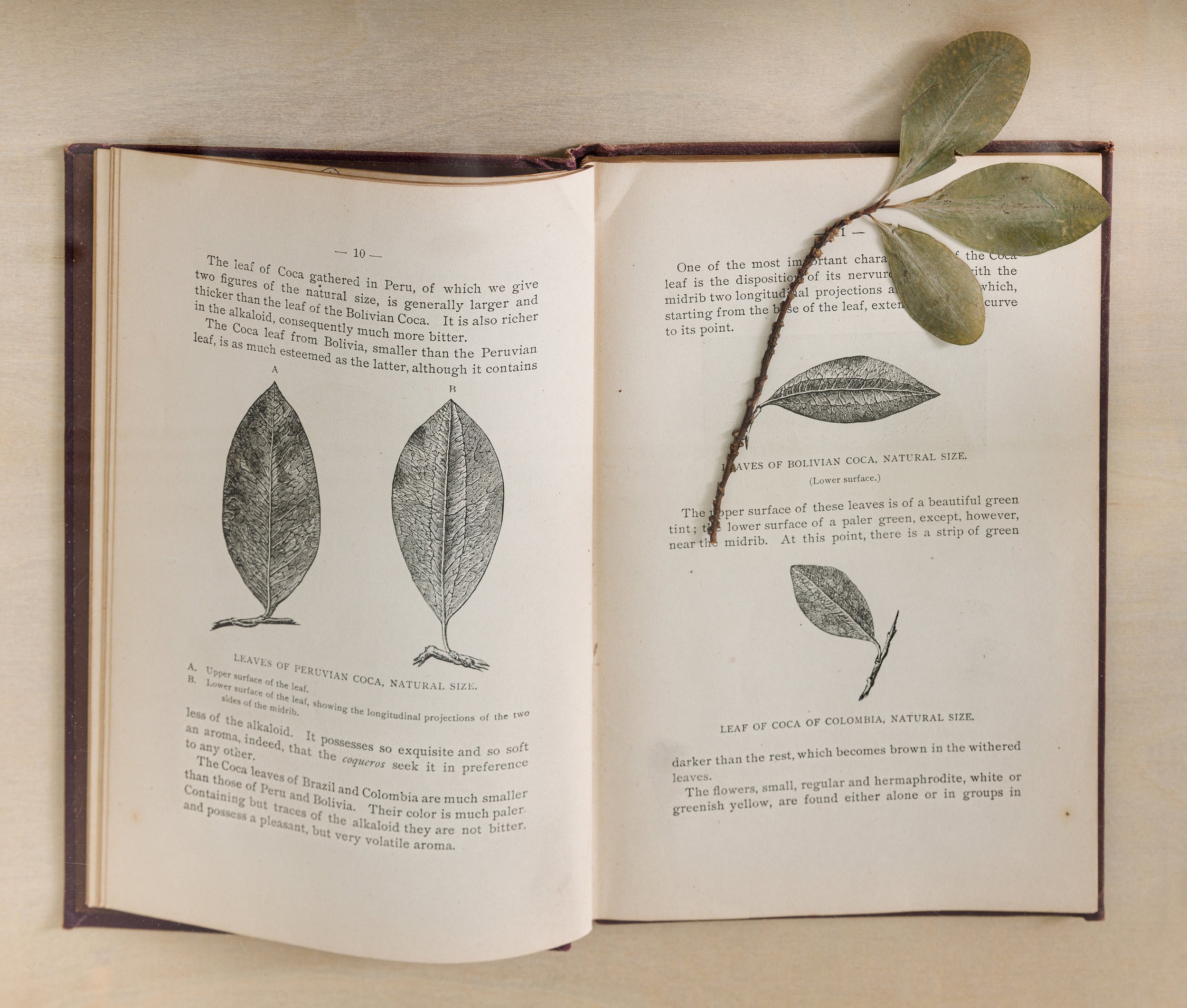
in pieces...
2023, PS 122 Gallery & Residency Unlimited (RU), New York
Curated by Rachel Raphaela Gugelberger
Artists: Abang-guard (Maureen Catbagan + Jevijoe Vitug), Tatiana Arocha, Miatta Kawinzi, and Jodie Lyn-Kee-Chow
Photographs by Etienne Frossard
Watch the virtual panel Decocainizing Coca: Challenging Western Narratives of a Sacred Plant
Spanish / English

in pieces…
From left to right: Creciendo desde mis raices, 2023. The Cost of a Line of Coke, 2021-Present. Decocainizing Coca, 2023.
Installation view PS 122

The Cost of a Line of Coke, 2021-Present
Graphite and junpakushi paper, 15 x 9 feet composed of 1000 drawings each 3x4 inches.

With each rub, I think about how to learn about this ancestral plant that continues to be persecuted and torn off from the land over and over again.
With each rub, I reflect on how to learn about Coca’s past and those who have cared for her.
With each rub, I think of those who flee looking for a place of belonging, as they have been displaced from their own territories.
With each rub, I think of all those who have died in a long war that seems to never end.
With each rub, I think of those who unknowingly contribute to this never-ending war.
With each rub, I think how do we all commune with this sacred plant without having access to her because of her illegality?

Creciendo desde mis raices , 2023
Pigment print on handwoven khadi cotton and chambira thread, 20 x 60 inches.



Decocainizing Coca, 2023
Polaroids, vintage book, 72 x 15.

The coca leaf is fundamental from a cultural, social, political, religious, medicinal, and nutritional point of view for the daily life of the indigenous communities in the Andes and the Amazon. Its use is ancestral and mystical and sacred characteristics are attributed to it. From a Western perspective, the coca leaf has been commodified, stigmatized, and considered harmful due to its association with its Class A narcotic derivative: cocaine.
“The War on Drugs” policies that the United States has waged for several decades have not only failed to reduce the drug trade, consumption, and production of the alkaloid that comes from the coca plant but has produced catastrophic social and environmental consequences, especially in the cultivating countries of Colombia, Bolivia, and Peru. Eradication and prohibition have turned campesinos into state enemies, fueled the Colombian armed conflict for decades, and caused fatal damage to people and rainforests.
This visual and chronological narrative shows how the Western marketization -market and stigmatization- of the coca plant and cocaine have invisibilized the relationship of kinship between the sacred plant and the indigenous communities in the Andes and Amazonas. From the colonization period to the boom of production and commercialization of products like Vino Mariani, Coca-Cola, pharmacological products, and later persecution of cocaine, this piece confronts us with the problematic and appropriative Western views of coca use. Which, on one side, shows a picture full of explorers, inventors, elites, science, progress, and public health, while on the other, reduces the plant and the people that have used it for millennia to mere N.N.
Text by Giselly Andrea Mejía Zapata

Decocainizing Coca, 2023
Polaroids, vintage books, c-prints on kuzu paper, totumo, mambe and pressed coca planta, 72 x 15.



in pieces… Installation view PS 122
From left to right: Miatta Kawinzi, to trust the air might hold us, 2023 Tatiana Arocha, Creciendo desde mis raices, 2023. The Cost of a Line of Coke, 2021-Present. Decocainizing Coca, 2023. Miatta Kawinzi, what roots deep dig, 2023.

Decocainizing Coca: Challenging Western Narratives of a Sacred Plant, a panel about alternative pathways that reverse the Western narratives of the coca plant that have invisibilized the millenia-old ancestral, quotidian, and sacred uses of the power plant by Andean and Amazonian communities. The conversation is moderated by Marcela Vallejo, Pedagogical Coordinator for Vist Projects with speakers Dora Troyano, coordinator for Alianza Coca Para la Paz; Fabiola Piñacue Achicue, indigenous of the Nasa people, and founder of the commercial and resistance initiative Coca Nasa; and visual artist Tatiana Arocha. Decocainizing Coca is organized in conjunction with in pieces…, the culminating exhibition of the 2023 NYC-Based Artist Residency Program on view at PS122 Gallery from June 10 - 25, 2023.
Click here to view English translation
